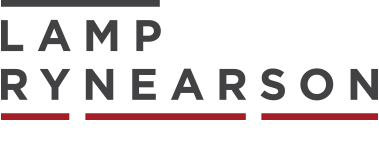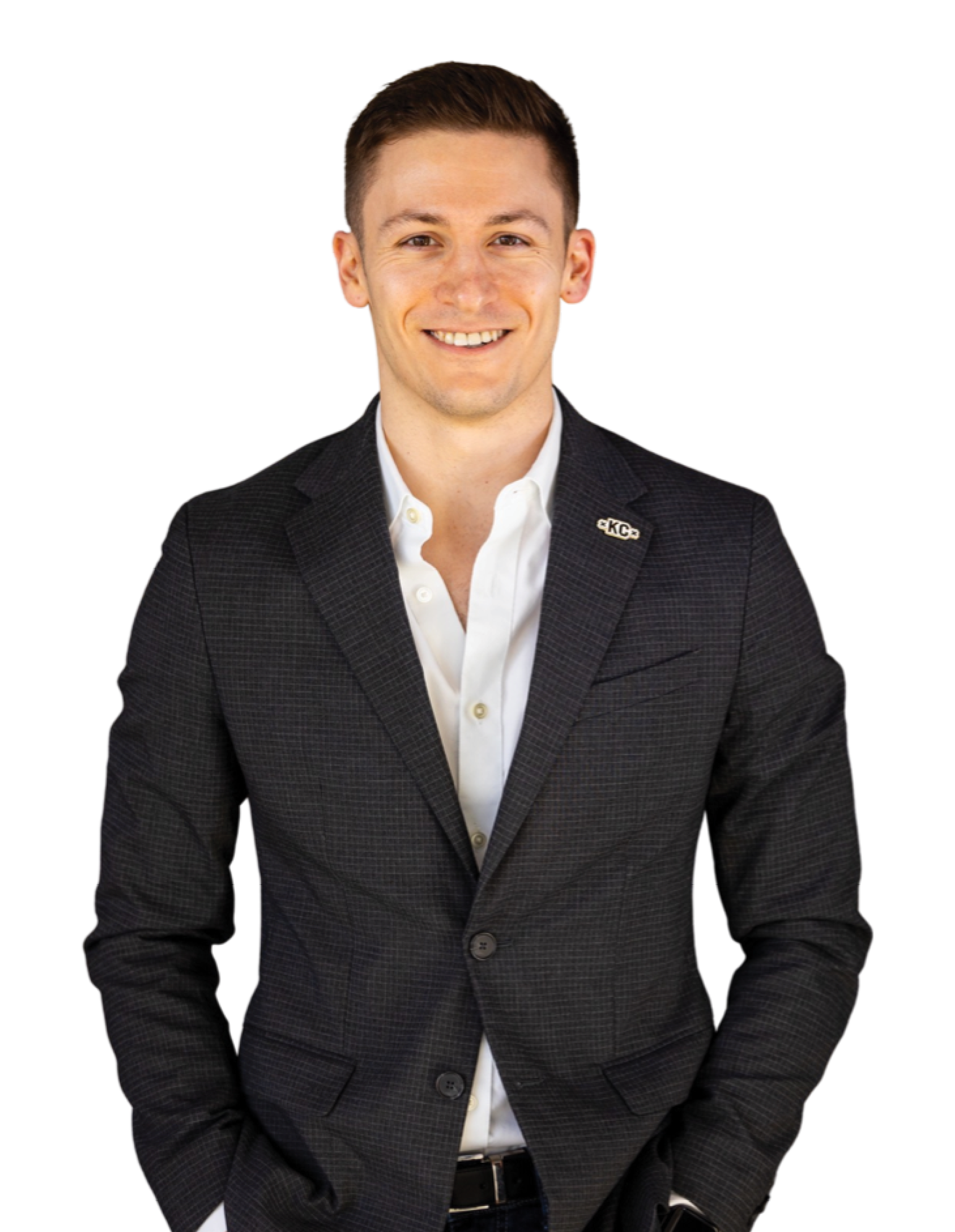Pride Month stands for courage and justice; most of all, it stands for love. We are inspired by the community of trailblazers and change-makers who have stood up for equality and are committed to their legacy work ahead. To celebrate the LGBTQIA+ community, we sat down with James Maiden, Internal Communications Specialist at McCownGordon Construction, to discuss his role as a leading change-maker in Kansas City.
James has a love for the art of communication and is driven by people. At McCownGordon, his role focuses on keeping every member of the team informed and engaged by working across the enterprise, and with senior leadership. He co-chairs the Pride (LGBTQIA+) Business Resource Group and sits on other committees at McCownGordon. As a believer that businesses can lead societal change, he stays active at the Mid-America LGBT Chamber of Commerce with their Marketing and Programming committees and now leads the Rainbow Collective program. James is often found around KC with an iced coffee in hand running a company event, at professional development events focused on making our region a more inclusive place or studying for his MBA.
Q: As a change-maker yourself, where do you feel you’ve had the greatest impact in your career? What is the legacy you hope to leave?
Being called a change-maker is a big compliment! In my career, the significant changes I have been able to make are meaningful connections. I’m a big fan of relationships; they are essential to the human experience. To create a meaningful relationship, you seek to understand someone. Sometimes connections are instantaneous, which is excellent, but a good 90% of the time, authentic connections come from taking the time to know someone and them taking the time to know you.
In my career, I’ve been lucky to have such great people around me. I’m driven by making sure people are connected and enjoying those same relationships. Whether it be someone looking for a new job and needing to connect with a professional in their industry or just connecting friends who aspire to have more good people around them.
The legacy I hope to leave has been on my mind, given everything happening in the world, especially with the LGBTQIA+ community. I kept telling myself I wanted to be known for making change, improving people’s lives, and doing good stuff, which is such a broad statement.
Then I realized I was not actually doing anything because I was trying to do too much. So, I had to have a moment of self-reflection and recognize that what I do want to be known for is for connections and love.
I want to be that person; if someone needs help, wants to make a change, or to learn more about a community or an organization, they know they can come to me. That includes being there if someone needs a shoulder or needs to talk, whether it be for personal or professional life.
We often say that there is no crying in construction or no crying at work. The world is unpredictable; there is so much happening. Our personal and professional lives will always blend, and the sooner we accept that and are there for each other while we are going through it, the better.
Q: Who, in your life, has been your change-maker?
I have been fortunate to have remarkable people in my life. So many wonderful people surround me. My father has always been a fantastic human to me, and my mother has always been extraordinary. When I came out to my parents, though, it was hard for them. But they took the time to understand, and they helped encourage me. When I was changing jobs to move into the nonprofit world and when I was changing from the fine arts to construction, they were there saying “If this is the change you want to make, you can do it, and we believe in you.” The number of times that does not happen, whether kids or teenagers, is too high. There are too many people who do not have someone there to say, “You can do this,” even if it is unfounded; it makes such a big difference to people.
I have an outstanding boss who I also see as a change-maker. She was the one that noticed I have a way with people and communication, and she said she would love to see me in this role that I am now in. So, she challenged me, and now three years in, she still challenges me and says, “If you want to make this change, how are you going to do it, and how can I support you?” She is also the executive sponsor of our company’s Pride Business Resource Group.
There is something about a change-maker in your life that does so much more than encourage or cheerlead. They advocate.
They are the people who tell others what you are capable of and passionate about when you can’t be in the room. This could be fighting for a new benefit or identification that will improve the lives of associates, whatever that may be. Being a female chief marketing officer in the AEC industry, not only does she continue to fight that fight of being a female in a male-dominated industry, but she takes the time and effort and uses her voice to advocate the LGBTQIA+ community in both the office and the field. She is willing to make that fight because she knows it’s an uphill battle. It is powerful to have someone who knows what struggle is and is willing to use their voice and power to advocate for those who may not have a seat at the table.
Q: What can companies do to ensure LGBTQIA+ voices feel safe and heard?
For a company to allow their associates, especially in the LGBTQIA+ community, to feel safe and heard, they must open the door. That’s the hardest thing to do. We launched our LGBTQIA+ business resource group in October and hosted a panel about LGBTQIA+ history for the allies and those who want to learn. McCownGordon opened the door and allowed this conversation because they knew the importance of being seen and heard and having a voice.
The easiest thing a company can do is provide the tools for recognition. To be seen means allowing people to display themselves how they want to.
Allies in the workplace matter. There is something to be said about allies in the office showing that they are a safe space. That could be a magnet, a flag, or personal wear. For example, when I go into meetings, especially with people who have never met me, I try to use my pronouns. That creates a safe space for people that may be pronoun sensitive.
It never hurts to show people you are a safe space. You’d be surprised what that can do personally for someone’s heart. It keeps associates engaged and happy when they feel safe in their workplace.
Famously, we build buildings. But if you read our purpose, it says, “We exist to improve lives.” At the end of the day, we are a people company. When people feel safe, they can do better. Businesses are the key drivers of societal change. It comes from the inside. Affinity groups educate those who don’t know and spark the conversations we need that lead to change. Those conversations can happen at work.
Q: How do you feel that communities can support the next generation of change-makers?
A big part of bringing up that next generation and encouraging them to be the change is to listen and not discount their ideas, first and foremost. My Gen-Z colleagues may make fun of my “outdated” social media use, but they are one of the most, if not the most, inclusive generation to date.
This upcoming generation has great ideas; they have nothing but love. If we can listen to them and ask questions to understand (not judge), then we can kick start a passion in them. When we ask questions, understand, and support them, that is how we get them excited. One of the big things that changed me is that the people in my life have always encouraged me to get involved. It’s about encouraging them and connecting the next generations. Gen Z may come to a board meeting with some wild ideas, but you know what? I bet they work, and I bet they make a difference.
If we really want to encourage this next generation to continue making change, and continue advocating for love, they need to understand the history. Not too long ago the LGBTQ+ community really had to fight and persevere. It wasn’t safe to go to certain places and younger generations need to understand the history of that and other marginalized communities. These stories only inspired me to where I am today, to continue be vocal and advocate.
We must support our community and educate those around us, so they can understand we are just people. We are your brothers, nephews, mail people, and cubicle neighbors. And we are people.
James, thank you so much for spending time with us today! We truly appreciate you sharing your journey with us. To learn more about McCownGordon and their diversity, equity, and inclusivity efforts, please visit: https://mccowngordon.com/diversity-inclusion/



